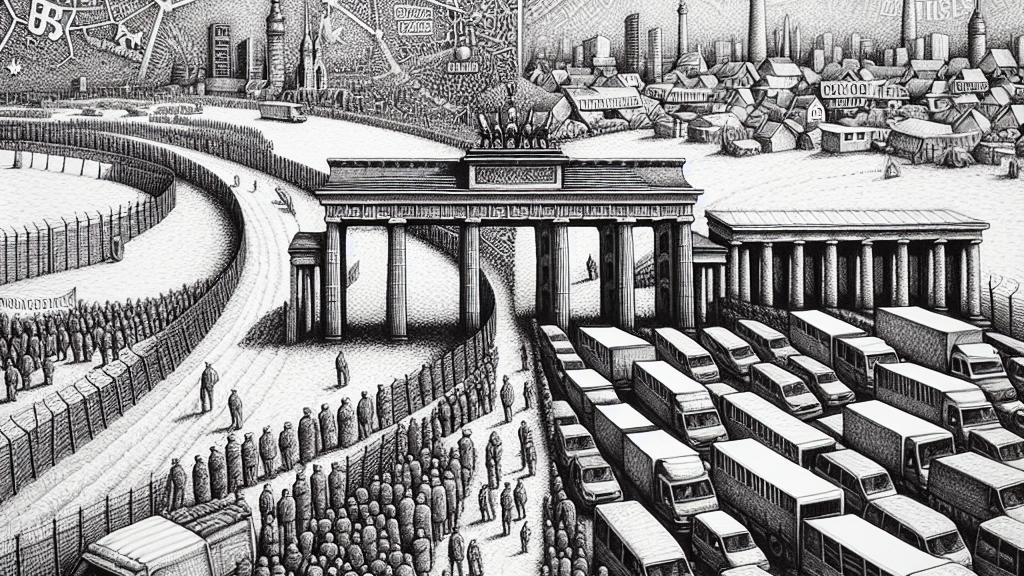Resurgence of Border Controls: A Step Back in Time
Overview
- Reintroduction of border controls between Poland and Germany evokes historical tensions.
- Significant effects on workers, trade, and local economies emerge.
- Concerns over diminishing integration and rising prejudices arise.

Background on Border Controls
On September 16, 2024, the vibrant exchanges that once characterized the Polish-German border experienced a profound shift with the reimplementation of border controls at the Frankfurt-Słubice crossing. While officials argue these measures are essential for national security and the fight against illegal immigration, many locals feel this decision represents a noticeable regression. It’s not just about crossing a line on a map; for countless individuals, this brings back haunting memories of a time veiled in distrust and heightened divisions. In this context, the border stands not only as a barrier between two nations but as a symbol of historical complexity that still influences interactions today.
Impact on Workers and Trade
Consider the daily journeys of Polish workers who commute to Germany: each morning, they face extended wait times and uncertainties at border checkpoints. This is more than an inconvenience; it jeopardizes their employment. Picture a logistics manager in a local business who suddenly finds shipments delayed due to unanticipated border checks. This unfortunate scenario, once rare, is now becoming alarmingly common. The labyrinth of bureaucracy makes day-to-day operations a challenge, and companies that thrived on efficient cross-border cooperation now find their operations stymied. With workshops and businesses built around the tenets of synergy between two nations, the increased hurdles serve as a stark reminder of how easily progress can be undermined.
Historical Context and Future Outlook
In Słubice, where generations have intertwined lives and histories with the neighboring Frankfurt (Oder), the renewed border checks resonate deeply. Residents are reminded of past stereotypes that painted harsh perceptions of one another, and with these restrictions, there looms a fear that such old prejudices may resurface. It’s not merely about inconvenience; it’s an affront to the cherished relationships and cultural interactions that have flourished over the years. As community dialogues echo with concerns, hope persists for a future where collaboration flourishes once more. A united spirit, one that values understanding and shared experiences over barriers, must reclaim its place in the narrative, enabling a vision that looks toward unity rather than division.

Loading...